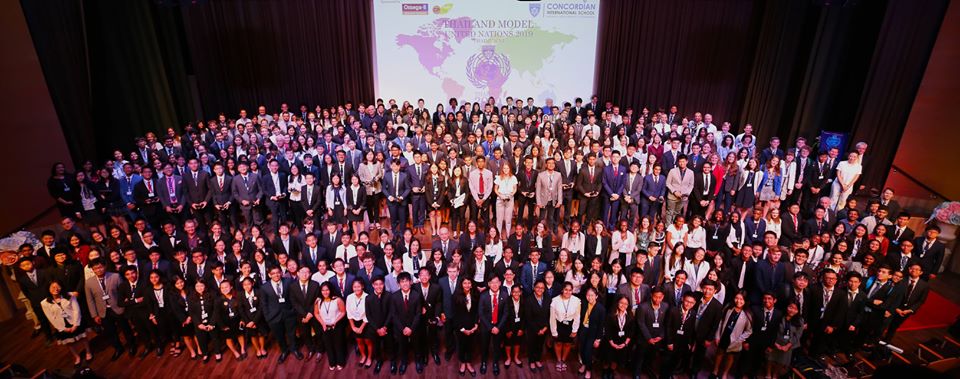
Model UN is a world-renowned program in which students role-play delegates representing member states of the United Nations. This is done through a simulation of UN committees and agencies, such as the Security Council or Human Rights Council debating current, relevant international topics. While participating in Model UN, students gain a multitude of 21st Century skills, that are not often practiced in a traditional classroom setting – public speaking, negotiation, and advanced critical thinking skills.
Participating in Model UN challenges students in ways beyond the hurdles of international relations terminology and rigorous topic and country research. To engage, students must present speeches to a group of peers, incorporate the ideas of others into extemporaneous remarks, develop and write proposals, work in an unstructured environment to find allies, and use parliamentary procedure.
The discussions are rigorous and solutions-oriented, with the ultimate goal of developing a proposal that a majority of the countries can agree upon. As a result, students gain a nuanced understanding of the global issue that they are discussing and the countries represented, heightened communication skills, and new reflections on the world and their own stance.
Seoul Model United Nations Conference
A delegation of 20 students flew to South Korea with two English teachers in mid-November 2018 for the twenty-first edition of Seoul Model United Nations Conference (SEOMUN XXI), the largest MUN in Northeast Asia. There they participated in three intense days of debate on various global issues alongside the hundreds of delegates from around the world. The theme of that year’s SEOMUN was ‘The Perils of Indifference.’
Reflection by student:
|
A reflection written by Cyrus Yiu
SEOMUN was surely one of the best conferences I have been to, despite attending various conferences both locally and overseas. I was delegated the country India in the UN Disarmament Commission, and the experience was both rewarding and inspirational.
One of the highlights was being able to work with delegates all over the globe, from South Korea to Thailand and Singapore. We all have different approaches to the issues discussed, not only because of the different stances we hold as delegates, but also how we are immersed to different culture and background since young.
|
|
|
Thailand International Model United Nations Conference
In early April 2019, another delegation of 18 students with two teachers flew to Bangkok, Thailand, for the sixth edition of Thailand Model United Nations Conference (THAIMUN VI) – one of the most lauded in Asia-Pacific. The three-day conference prompted them to come up with creative yet practical solutions to an array of real world problems.
Reflection by student:
|
A reflection written by Latisha Lau
Despite having been to other Model United Nations events before, THAIMUN was a distinctly different experience that stood out in my memory. This is probably because it was an international MUN, which gave me the opportunity to meet and work with people across the globe.
I was delegated the country Poland in the UN Security Council. The council discussed and debated contentious issues such as the conflicts in the South China Sea and Russia's annexation of Crimea. Delegates performed their roles outstandingly, simulating the speaking style and content of their country's leadership effectively.
|
|


